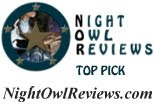Last evening, on Twitter, Literary Agent Colleen Lindsay had a brief Ask an Agent session, and I posed the question to her, "If a client wants to write something you don't represent, do you collaborate in-house or part ways?"
Her response wasn't exactly what I expected. But it did make me stop and think. She said it depends, because sometimes shifting may not be in the client's best interests career-wise.
Many of us, myself included, dabble with more than one genre. Some assume other pen names to accomplish writing in different areas of interest. You'll see a lot of this when authors write erotica -- they like to keep their identities separate, and this makes sense to me since so much of erotica carries an unfortunate stigma amongst other non-erotic readers.
But Ms. Lindsay made me think about how it might be detrimental to a career, and I must confess I hadn't quite ever considered that side of the coin.
Now, I am just musing at this point -- we discussed nothing further so don't run off thinking she said anything along these lines:
I wonder if the same impact applies to writing different genres of Romance? I can't see that being as large of a factor as say writing romance and then leaping into say, horror. In romance, there are basic essentials across all genres. You master them, then switching a genre becomes a matter of understanding the audience's desires, the specifics related to the new genre, and satisfying all those factors along with a plot, period.
I also have to wonder if the career impact becomes more of a factor not necessarily with the desire to switch, and perhaps successfully selling the new genre to a publishing house, but when the final numbers come in. If sales are poor in the new genre -- bad career move. Might impact sales on your first genre from that point forward. If sales are good in the new genre -- successful career move? Or would you then, if your sales were better in the second genre than the first, be pigeon-holed in an area and expected to write what may not be your primary passion?
It's an interesting subject, and one I would urge everyone considering writing more than one "flavor" to give thought. It sure gives me a new perspective on some of the ideas I was tinkering with long-term wise.
~Claire
www.claireashgrove.com
www.toristclaire.com
Well, as I finish up the final round edits for Timeless Valentine, I'm left thinking about the author/editor relationship. I've heard several true horror stories from people in my RWA Chapter, about friends of theirs who are true divas. It makes me wonder, what propensity of the author population actually carries on in this fashion?
My relationships with my editors are smooth. If I have a question, I ask. They don't hesitate to answer. If they want me to change something, I consider what they are asking and weigh the question: "Do I want to be published, or do I want to be picky?"
Rarely does that take much considering. Therefore, when my editor asks me to change something, nine times out of ten I do so unquestioningly. If I have a hesitation, I try to discover what the editor is looking for, see if there's a middle ground without blowing it up into an issue. (Shoot! I get nervous even asking for further details, I'm certainly not going to bicker with someone who holds my book's fate in their hands.)
More often than not, the comment ends up being a moot point and either I change it without pause, or my editor decides it's not worth messing with.
I cannot imagine the relationship between author and editor being drastically different. Editors are here to help our books become better than what we already feel is "perfect". I can't imagine rooting my heels in and having trivial arguements just for the sake of maintaining every actual word I put in.
But I guess some folks don't feel that way. They feel the editor should be grateful to them, I suppose. Or something equally as full of drivel.
So, note to authors...
Folks, its in our best opinions to do what our editors want of us. We have to trust that our editors came to hold their position because of their knowledge. Questioning everything they want isn't the best way to make you look easy to work with. Pick your battles. Find out what is most important to you, and know what about your book you're unwilling to compromise on. If you can make every other correction the editor desires, and you politely challenge one issue, they are more likely to work with you than if you complain and groan about everything.
Edits aren't fun. Even editors know this. But folks, these folks aren't out to ruin your book. They are out to make it the best book the market can support. And in so doing, hopefully, bring in your dollars.
~Claire
www.claireashgrove.com
www.toristclaire.com
"Victorians used the term 'limbs' as a euphenism for legs, which were thought to be so sexually exciting to a man, even a glimpse of a table leg could incite him to sexual frenzy. Table skirts were invented to prevent any unnatural unions between men and furniture."
~(History Channel International)



































